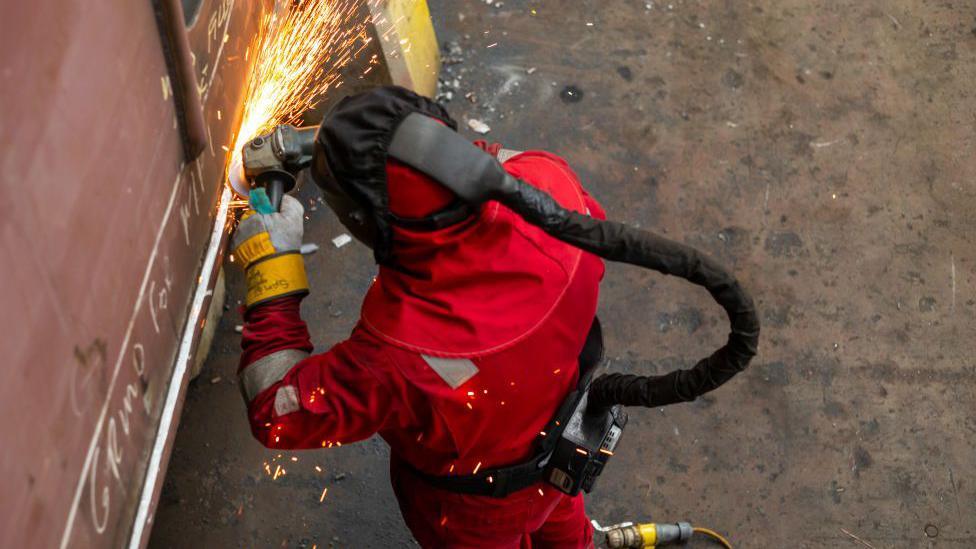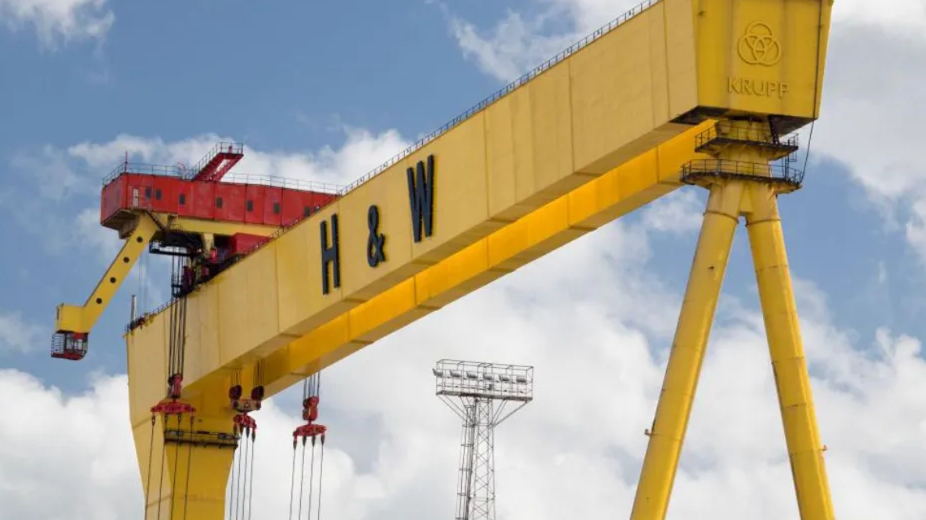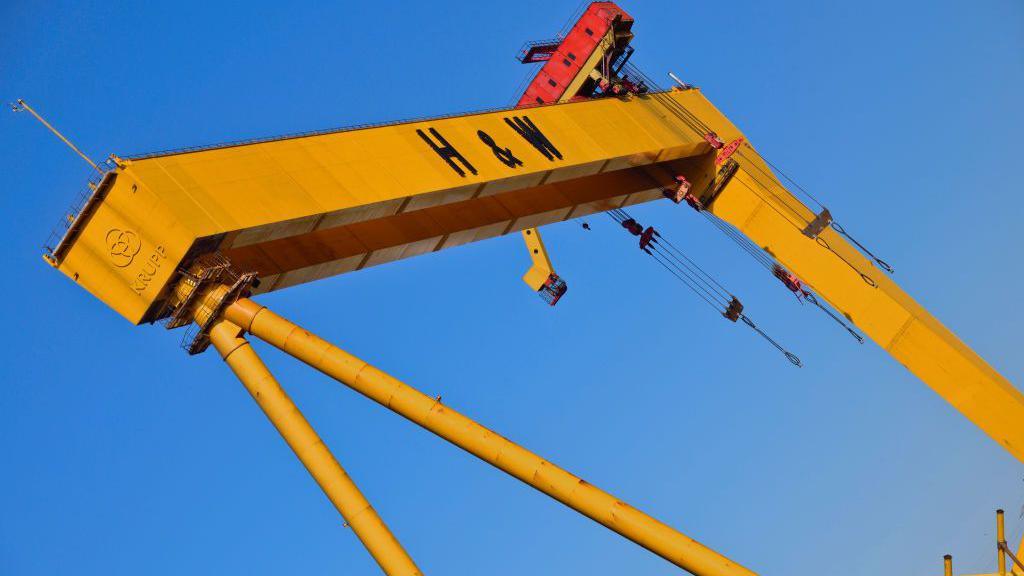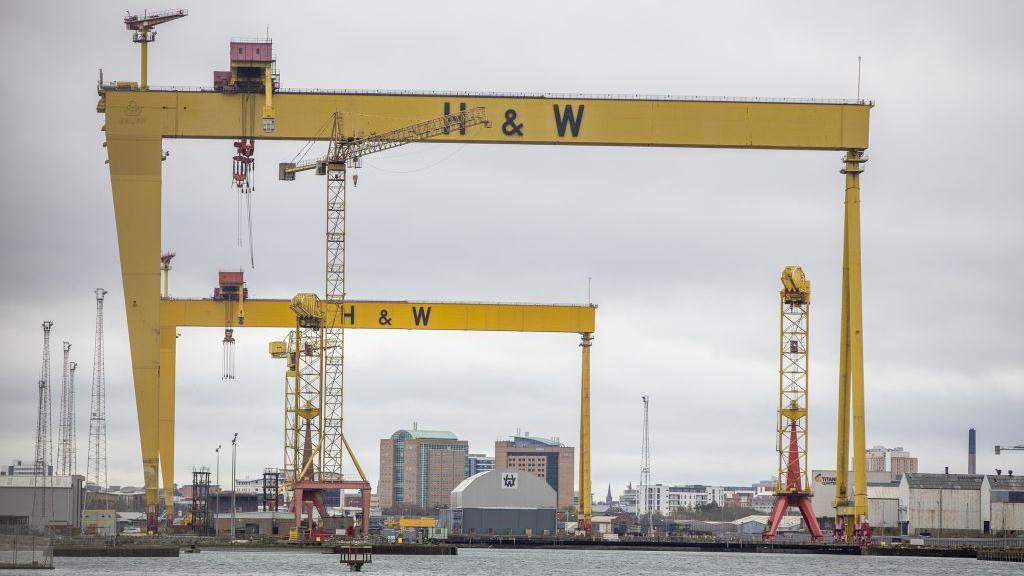Titanic shipyard may run out of cash within weeks

- Published
Belfast shipbuilder Harland & Wolff is running out of cash, putting hundreds of jobs at risk, the BBC understands.
The firm, famed for building the ill-fated Titanic, is in crisis talks to save it from collapse.
One of the unions representing workers at the shipyard has sent a memo to its members suggesting there is "only funding for the business until the end of this month" and is calling for the government to step in.
A review looking at options for the shipyard by Rothschild bank is expected to be finished in the coming weeks.
Harland & Wolff and the government have been approached by the BBC for comment. Rothschild declined to comment.
The GMB union reiterated the seriousness of the firm's financial position in a letter sent to the business secretary and defence secretary on Friday.
It described the situation as "critical" and said time was "fast running out for the UK government to find a solution".
"Workers, families, and communities will potentially be thrown into turmoil once again, in just days or weeks, because of abject failure in national industrial strategy and corporate mismanagement," the GMB said.
The company's main site is the historic Titanic shipyard in Belfast. It also has yards at Appledore in Devon, and at Methil and Arnish in Scotland. It employs 1,500 people in total.
The union memo to workers, which has been seen by the BBC, indicated there had been 21 expressions of interest from buyers for the company so far.
In its letter to ministers, the GMB expressed concerns over private bids for parts of the business.
"No private company in the bidding should be allowed to cherry pick what yards or contracts they wish to save – especially with huge taxpayer contracts in the mix.
"All four Harland & Wolff yards are needed for our country and can thrive under a proper industrial strategy," the letter said.
'A very substantial risk'
However, the firm is heavily loss-making and its shares have been suspended since the beginning of July, after it failed to publish audited accounts.
Later that month, ministers rejected the firm’s application for a £200m loan guarantee.
Business Secretary Jonathan Reynolds told parliament at the time: "Government funding would not necessarily secure our objectives and there is a very substantial risk that taxpayer money would be lost.”
Ministers were working with the company, unions, and devolved governments to “support a positive outcome for all affected sites across the UK”, he added.
The firm’s existing creditor, US-based lender Riverstone, lent a further £19.5m in August, but it is understood Harland & Wolff is still in talks to secure further funding beyond the end of September.
There has been an exodus of senior directors in recent weeks with the chairman, chief executive, chief financial officer, and two non-executive directors all walking away.
Meanwhile, some existing investors have voiced their concerns about the company going into administration.
Last month a group of shareholders said they feared the business was being lined up for a pre-pack administration – enabling the company to sell itself or its assets before administrators are appointed.
The 163-year-old company has been rescued from administration once before.
In 2019, it was saved by a three-year contract with the Spanish shipbuilder Navantia to build three Royal Navy support ships.
Related topics
- Published12 August 2024

- Published6 August 2024

- Published1 August 2024
